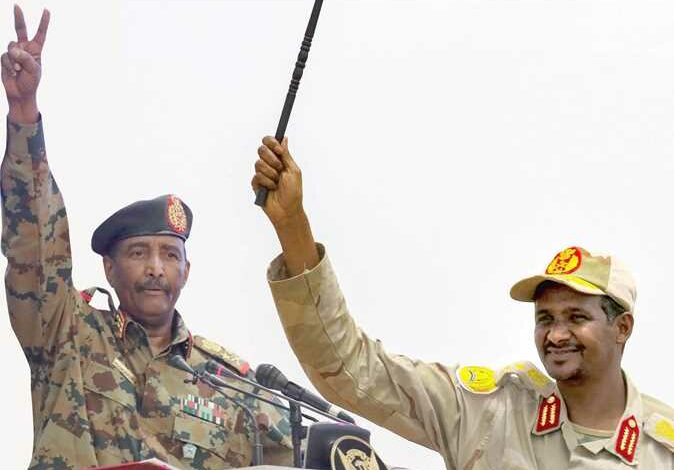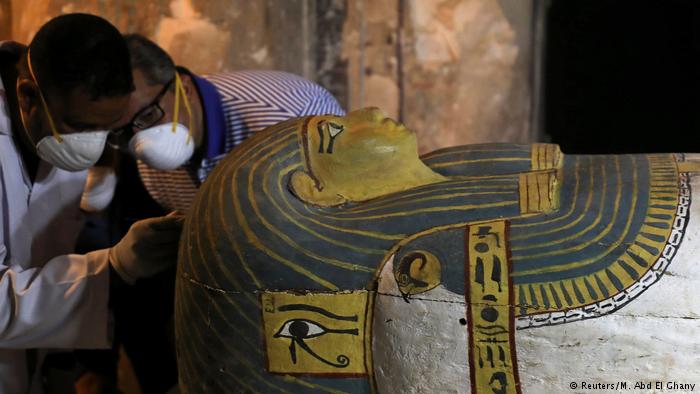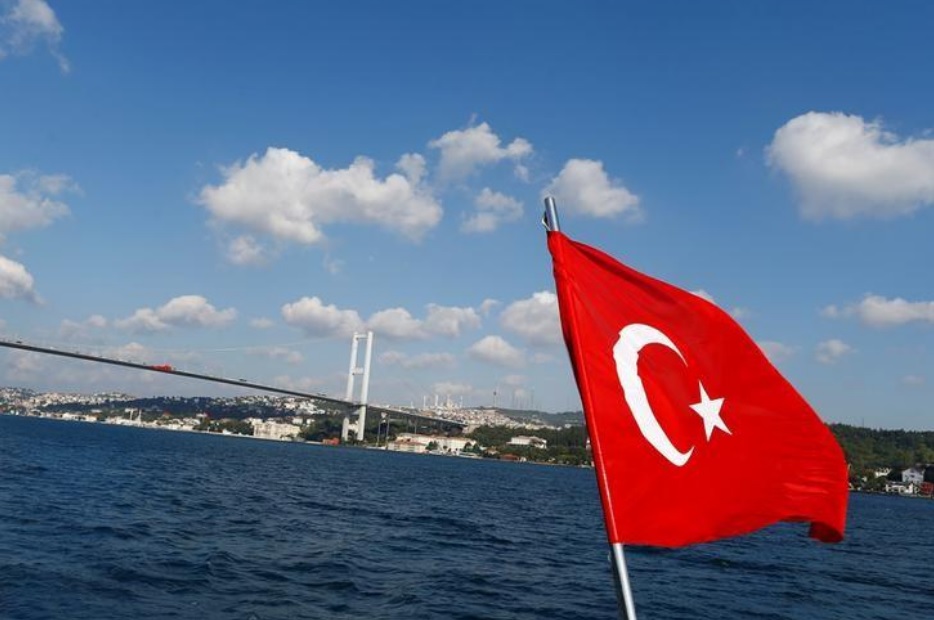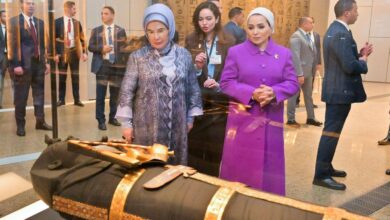
After nine months of civil war in Sudan, the chairman of the Sudanese ruling Sovereign Council and army commander Abdel Fattah al-Burhan announced that he has agreed to meet with the commander of the Rapid Support Forces (RSF), Mohamed Hamdan Dagalo (Hemedti) – a move that may herald the end of the conflict.
Burhan’s announcement came in a speech delivered before officers of the military base on the Red Sea, where he affirmed that he is ready to negotiate with the “militia,” but rejected any peace agreement that would “insult to armed forces and the Sudanese people.”
He also pledged to hold accountable what he described as “the cancer of the Rapid Support Forces,” stressing that all those negligent during RSF’s takeover of the city of Wad Madani would be held accountable.
The Intergovernmental Authority on Development (IGAD) had previously proposed a meeting between the two generals, but Burhan rejected the proposal.
The extraordinary IGAD summit on December 9 announced that both Hemedti and Burhan have agreed to hold a direct meeting between them to sign a ceasefire deal and return to dialogue to resolve the conflict.
According to the Sudanese Ministry of Foreign Affairs, Burhan set a condition that the Rapid Support Forces must evacuate the homes of civilians.
No date has been set for the meeting, but expectations indicate that it will take place within the next few days.
The RSF announced Hemedti’s attendance on the condition that Burhan comes to the proposed meeting in his capacity as “commander of the army and not head of the Sovereign Council.”
This gesture by Burhan comes at a time when popular pressure is mounting on both sides to stop the fighting. With the war expanding every day amidst the killing and displacement of thousands of citizens, the Sudanese people are increasingly determined to reach a quick and unconditional negotiation.
Military expert Hamdi Bakhit anticipates that this meeting will not lead to positive results for both parties but could result in pressure from both sides, in light of the escalation of fighting within 13 states so far with the continued state of chaos in all places controlled by Burhan.
Bakhit added that this meeting could lead to the RSF becoming an involved party within Sudan’s future, though he noted that civil parties reject the RSF as part of Sudan’s future equation.
He also referred to breakthroughs within the Sudanese army during the recent period.




